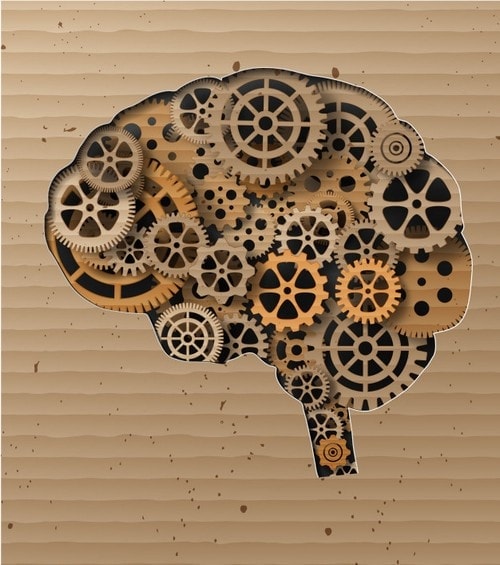In the journey of life, we often encounter two particular words: knowledge and wisdom. A dictionary defines wisdom as the ability to use experience, knowledge, and good judgment, but how does it differ from knowledge itself? While it may seem as simple as making a fruit salad, the philosophy behind wisdom and knowledge is a tad more intricate.
Most of the time knowing something is mistaken as having wisdom. Wisdom is gained from day-to-day experiences, which improves your ability to make better judgments and choices. On the other hand, knowledge is having clarity about the truths and facts of a particular subject. The importance of one can’t be denied in front of others. Both are equally important for a better life.
U.S. Army veteran and top-tier learning and development professional, Harold Hall describes this difference with a simple fruit salad philosophy that suggests:
“Knowledge is knowing a tomato is a fruit. Wisdom is knowing not to put it in the fruit salad.”
Table of Contents
What is Knowledge?
In day-to-day life, knowledge is having awareness or understanding of various events, objects, ideas, or methods of doing things. According to the oldest philosophy of knowledge is a “justifiable true belief”. Knowledge can be divided into three broad domains.
Knowledge is typically gained through education, reading, and experiences. The more we expose ourselves to different ideas, information, and perspectives, the more knowledge we accumulate. It is fundamentally about understanding and memorizing facts, theories, and information. For example, a student memorizes knowledge from textbooks, gaining an understanding of historical events, mathematical formulas, or scientific theories.
Yet, knowledge is not simply about memorizing facts and figures. It’s about understanding these facts and interpreting them in a way that’s meaningful and useful. As the unknown author sums it up, “Knowledge is a treasure, but practice is the key to it.” This implies that the true value of knowledge lies not just in its accumulation, but in its application to real-world situations. Therefore, while knowledge memorizes and knowledge understands, it is the application of this understanding that truly matters.
- Procedural: Procedural knowledge is knowing how to do something. For example, how to play football or how to drive a car.
- Personal: Personal knowledge refers to idiosyncratic preferences, firsthand experience, and autobiographical facts.
- Propositional: Propositional knowledge relates to general truths about the world and how we know it.
Advantages of Having Knowledge
- Knowing makes you an equalizer. You can participate in any conversation and can be in any situation to add value. therefore, if you find any topic interesting, study it., learn about it in detail. People will respect you for your knowledge.
- You can leave a legacy for the future. the more knowledge you share with people, the more knowledge you will retain. You can transfer your knowledge and it can be shared is one of the most important benefits of knowledge.
- Knowledge accelerates your career. Therefore, rather than wasting 10-15 years of your life to learn something from experience, take advantage of existing knowledge. Read books, listen to audiobooks, take a course, and ask questions to experts. In this way, you can achieve something faster than others.
Examples of Knowledge
- Science – Physics, Chemistry, Biology
- Technology – Types of software and the latest gadgets
- Business – Bookkeeping, Accounting & Marketing Strategies
- Cooking Recipes
- Family History
- Hobby Skills – Painting, Guitar Playing & Drawing
What is Wisdom?
Wisdom is the ability to make use of knowledge, experience, and understanding, and act or think based on them. In the age of science and technology, wisdom remains a mysterious concept to talk about. Wisdom can’t be gained from schools or colleges.
It takes a life-long time to acquire it. you will have to get into the field and only by trial and error method you can learn and your learning process will make you wise. Wisdom takes knowledge and transforms it into profound insights that guide our actions.
Advantages of Having Wisdom
- Strong character: A wise person has a strong character. Having a strong character is the foundation of the life of a leader. Strong character impacts the lives of others. wisdom helps you make correct judgments and people like you based on judgments made by you.
- Good judgment: You must have wondered why certain people have excellent judgment and others don’t. this is because good judgment is a product of wisdom and wisdom comes by making a whole bunch of wrong judgments. The experiences of a wise person make him good at judging. Good judgment will be a boon in solving problems and help you move forward.
- Make you influential: You can influence others by the use of your wisdom because your personality attracts like-minded people. People who themselves have wisdom, character, and zeal to learn will follow you.
- Brings honor: A wise person gets honor both in professional and personal life. your wisdom will make your lasting legacy. Your honor will rise with the rise in your wisdom and your life will become an example for others to follow.
Examples of Wisdom
- Understanding Human Nature
- Learning from Mistakes
- Practicing Emotional Intelligence
- Valuing Life Balance
- Prioritizing Long-Term Gain Over Short-Term Gratification
- Empathy and Compassion
- Resilience in the Face of Adversity
Difference Between Knowledge and Wisdom: Comparison Table
| Knowledge | Wisdom |
|---|---|
| Knowledge is having information about a particular topic or subject. It is about feeling confident to use the knowledge of the subject whenever the need arises. | Wisdom is the ability of a person to take the right decisions and choices. |
| It can be gained by efforts. | It can be gained through experience. |
| It is organized information. | It is applied knowledge. |
| Knowledge is selective in nature. | Wisdom is comprehensive in nature. |
| The process of knowledge is deterministic. | The process of knowledge of wisdom is non-deterministic. |
| The outcome of knowledge is understanding. | The outcome of wisdom is judgment. |
| The approach of knowledge is theoretical. | The approach of wisdom is spiritual. |
| Knowledge is associated with mind. | Wisdom is associated with the soul. |
| Knowledge is not timeless. It requires to update with time. | The wisdom is timeless and it keeps on getting better with the time. |
| The sources of knowledge are education, learning, reflection, science, logical thought, and reasoning etc. | The sources of wisdom are self-intuition. Wisdom enhances our character. |
Conclusion!
In conclusion, both knowledge and wisdom are important, wisdom is required to make the use of knowledge rightly. Although acquiring and applying knowledge is valuable, distilling and judging that information is also important and that can only be done with the help of wisdom. At last, we can say the truest form of knowing is attaining both knowledge as well as wisdom. Having both knowledge as well as wisdom can enhance the experience of our life and can make us do wonders in life.
FAQs
1) What are the key differences between knowledge and wisdom?
The key differences between knowledge and wisdom are that knowledge is an accumulation of facts, skills, and experiences while Wisdom is gained through life experience, understanding the cause-effect relationship, analyzing data, and making decisions. Let’s have a look at five key differences on different grounds:
- Nature: Knowledge is gained through learning and experience while Wisdom is an evaluation of the knowledge and experience attained.
- Source: Knowledge comes from external sources such as books, literature, people, or experience while Wisdom is acquired from oneself based on daily experiences.
- Purpose: The purpose of knowledge is to collect facts and information while the purpose of wisdom is to understand the implications and consequences of those facts.
- Involvement: Knowledge is just about memorizing things while Wisdom involves understanding, analyzing, applying, judging, and evaluating information for better decisions.
- Levels: There are a variety of levels of knowledge but wisdom is ultimately attained after all levels of knowledge have been acquired.
2) How can I gain wisdom?
Gaining wisdom is a process that requires understanding the cause-effect relationship, analyzing data, and making decisions. Here are some tips to gain wisdom:
- Develop self-awareness and observe your thoughts, feelings, and behaviors.
- Learn to ask questions.
- Read books, observe other people’s behavior, and listen to their stories.
- Learn from past experiences and try to relate new situations with them.
- Take risks but make sure you learn something from it even if the consequences are not as expected.
- Reflect on your thoughts, feelings, and actions before making decisions, etc
3) What is an example of wisdom and knowledge?
Wise friends prove to be a reservoir of wisdom and their experiences can serve as a valuable guide. A precious little person, on the other hand, may have knowledge memorized from books, yet lack the insight that comes from experience. The primary difference lies in application – while knowledge is an accumulation of facts and data, wisdom is the intuitive understanding and application of knowledge.
For example, while the word “knowledge” might describe sexual intercourse in biological terms, wisdom walks us through understanding its emotional and ethical dimensions. Wisdom obeys the principles of empathy and respect, enriching our life experiences beyond mere factual understanding.
Liked this post? Check out the complete series on Careers




How can I contact you,I want to learn from you